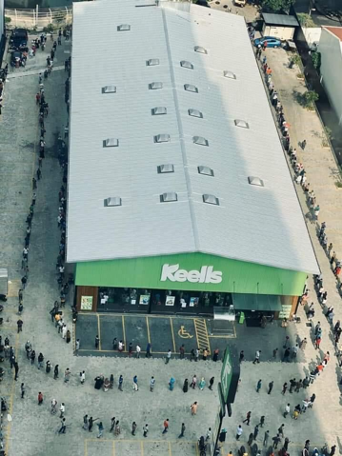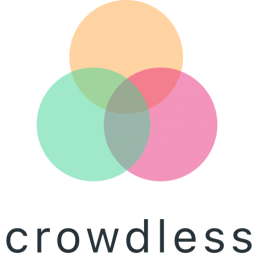Stay safe, save time and avoid crowds with Crowdless
Stay safe, save time and avoid crowds with Crowdless
Physical distancing may be the ‘new normal’
As countries around the world begin easing lockdown restrictions, we’re all faced with the problem of how to interact responsibly with one another.
Physical distancing is still necessary to help mitigate the spread of the COVID-19 coronavirus. We’re told by health authorities that this may be something we need to get used to — that it’s part of a ‘new normal’. So, as people are allowed to move around more freely, we need better awareness of where crowds and queues are so that we can plan our movements more safely.
Spending hours in a queue may not be your only option
Plus, who likes queues at supermarkets anyway? At Crowdless, we have a community of over 60,000 users from all over the world who’ve been writing in and sharing their horror stories of queuing at supermarkets.
Here’s a photo from one of our users, showing a crowd waiting to enter a supermarket in Colombo, Sri Lanka:

This was a problem even before this coronavirus pandemic struck. Prior to COVID-19, British people spent on average 5.5 hours a month waiting in lines[1]. Sure, the British love a good queue, but even they are now beginning to question the central role of queueing in British identity.[2] In fact, we surveyed our British users and only 15% of people say they would wait in a queue if they saw one.
With Crowdless, we’re providing a free tool to help you check how busy your local supermarkets are before you leave the house.
Get real-time information on how busy stores are so you can avoid crowds
With Crowdless, we’re providing a free tool to help you check how busy your local supermarkets are before you leave the house. This helps you choose a less busy time to visit or a less busy alternative. Not only can this help you save hours, it’s also a tool you can use to help you with social distancing and to stay safe.
Info from the community for the community
If there’s one thing we learned from lock-down, it’s that we’re all social creatures. It was difficult for many of us to go such a long period of time with minimal human interaction. Yet despite the barriers to physical interaction, we saw an upsurge in community sentiment. Communities were emerging virtually — through Zoom chats, WhatsApp groups, and online forums.
We heard stories from our volunteers about local communities creating WhatsApp groups to text each other information on how busy places are, so that vulnerable people could make better decisions about their movements. We heard stories from immuno-compromised people who relied on their friends and families to help them with the groceries.
We wanted to be a part of this community spirit, and to help magnify it. We know that the best information on how busy stores are comes directly from our community of users. They are the ones on the ground, experiencing things first-hand. We therefore launched our volunteer community ambassador program, which has seen people from over 12 different countries come together to brainstorm ways of improving the quality of our data and the coverage of stores. Together, we’re able to create a better app that helps people stay safe and save time.
We don’t compromise on privacy
Our team built this tool to help everyone out during these challenging times. There are no strings attached. We don’t charge you, and we don’t store or sell any of your personal data. In fact, we don’t even have a login screen so we don’t know who our users are. Data privacy is something we won’t compromise on.
So please stay safe, enjoy yourselves, and make your next visit to a supermarket Crowdless.
Download Crowdless on iOS or Android today: crowdlessapp.co/app.
Footnotes
[1] https://www.telegraph.co.uk/news/newstopics/howaboutthat/5052956/Britons-spent-six-months-queuing.html
[2] https://www.theguardian.com/commentisfree/2020/may/31/we-used-to-love-a-queue-but-that-was-before-the-pandemic
Stay safe, save time and avoid crowds with Crowdless was originally published in Crowdless on Medium, where people are continuing the conversation by highlighting and responding to this story.
